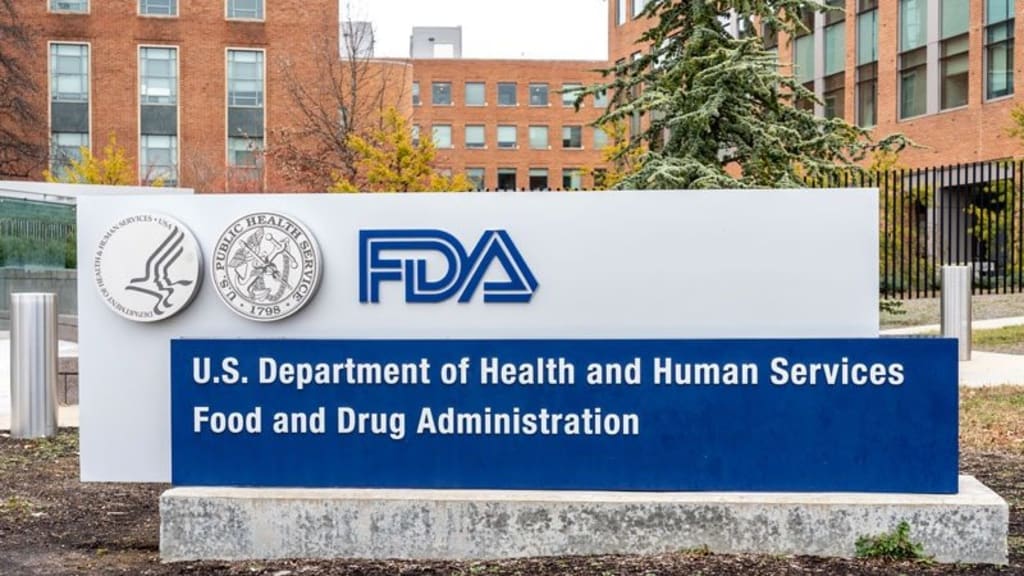The FDA has approved the first HIV prophylaxis medicine that may be injected.
Apretude, a newly licensed medicine, is administered to patients every two months rather than on a daily basis.

The Food and Drug Administration said Monday that the first long-acting injectable medicine for HIV pre-exposure prophylaxis, or PrEP, has been authorized.
The new medicine, Apretude, is an injectable that is administered every two months as an alternative to HIV prevention tablets such as Truvada and Descovy, which have been found to cut HIV risk by 99 percent when taken daily.
Apretude was found to be more likely than daily oral medications to reduce HIV in cisgender men and transgender women who have sex with men — by 69 percent for cisgender men and transgender women who have sex with men and by 90 percent for cisgender women in two FDA trials analyzing the drug's safety and efficacy. Apretude's improved effectiveness was attributed to the ease with which trial participants followed the every-other-month routine vs taking a tablet every day.
Dr. Debra Birnkrant, head of the FDA's Center for Drug Evaluation and Research's antivirals division, said in a statement that "today's approval adds a vital tool in the quest to end the HIV pandemic by giving the first alternative to prevent HIV that does not need taking a daily tablet." "This injection, given every two months, will be essential in combating the HIV pandemic in the United States, especially assisting high-risk persons and specific populations for whom adherence to daily medicine has been difficult or impossible."
While PrEP usage has improved in recent years, according to the Centers for Disease Control and Prevention, just 25% of the 1.2 million persons for whom PrEP is advised were administered the medicine last year. According to the CDC, over 285,000 people were using PrEP in 2019, with the vast majority of them being homosexual and bisexual males.
The newly licensed long-acting injectable — developed by ViiV Healthcare, which is majority owned by GlaxoSmithKline — is expected to make adherence simpler, increase PrEP use, and lower the national HIV rate.
"People who are vulnerable to acquiring HIV, especially those in Black and Latinx communities who are disproportionately impacted in the US, may want options beyond daily oral pills," ViiV Healthcare CEO Deborah Waterhouse said in a statement, adding that "Apretude was studied in one of the most diverse and comprehensive HIV prevention trial programs to date, which included some of the largest numbers of transgender women and Black men who have sex with men ever."
According to the CDC, males who have sex with men accounted for 66% of all new HIV infections in the United States in 2019. When the data is split down by race, Black Americans made up the largest amount, accounting for 42 percent of all new diagnoses in that year.
The federal government declared in July that virtually all insurance must cover the two authorized kinds of PrEP medications, Truvada and Descovy, as well as the lab tests and clinic visits necessary to keep such prescriptions – with no copays. Currently, insurers are not obligated to pay all expenses associated with the new injectable form of PrEP, which has a list price of $3,700 per dosage and is expected to start shipping to wholesalers and specialized distributors in the United States in early 2022.
PrEP4All's managing director, Kenyon Farrow, said his organization is "certainly delighted" to see the FDA approve another PrEP alternative.
However, he expressed concern that "making this choice a reality for most individuals would likely take years."
"Public health systems are already overwhelmed as a result of COVID, and much of the labor required to conduct this large-scale program is departing due to exhaustion," he wrote in an email. "Because it will need to be provided in clinical settings, payers will see it as a clinical benefit, which will take time to create correct coding for billing, as well as education and training for nurses who will likely bear the brunt of the implementation effort."






Comments
There are no comments for this story
Be the first to respond and start the conversation.